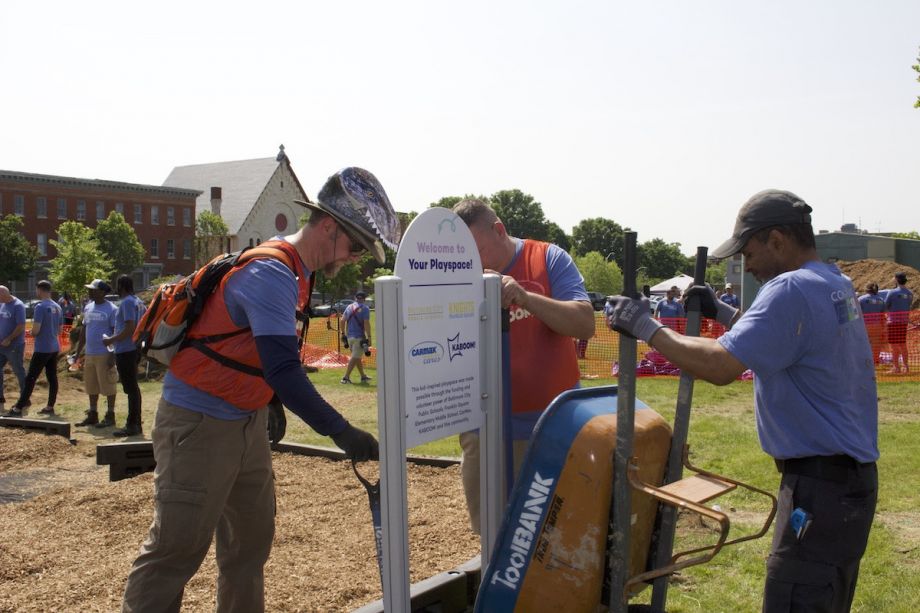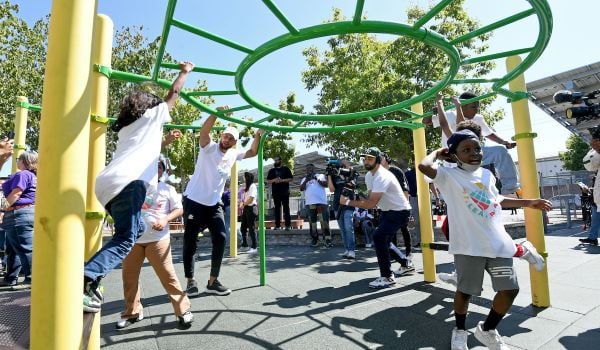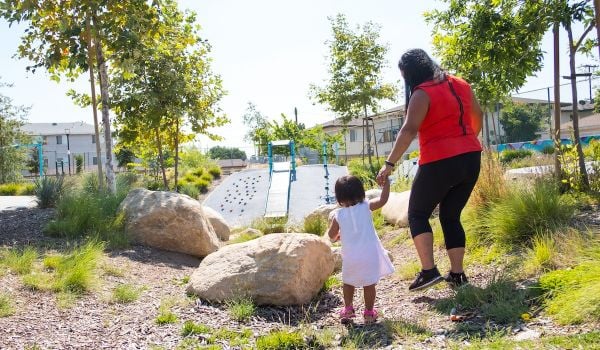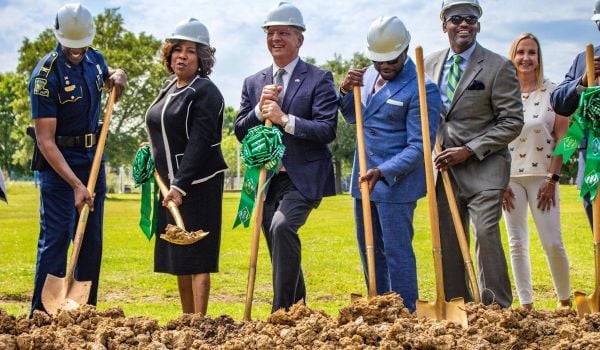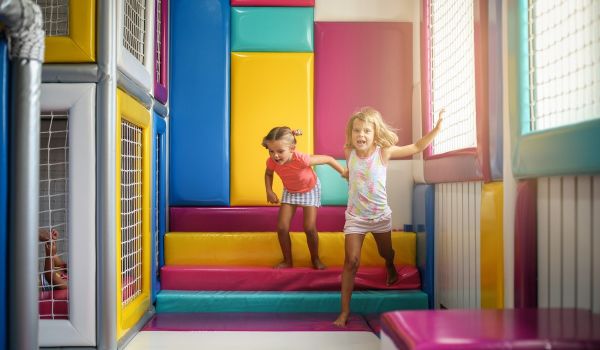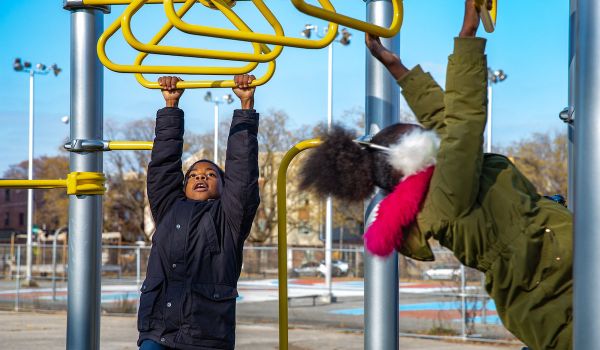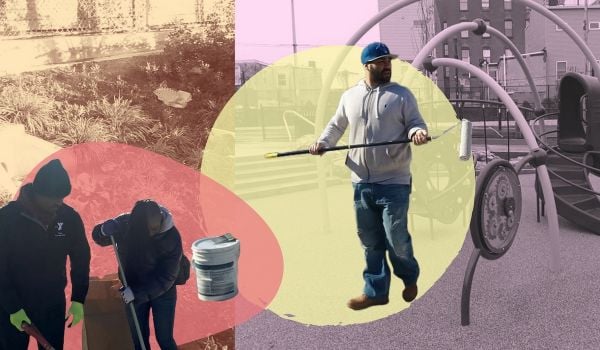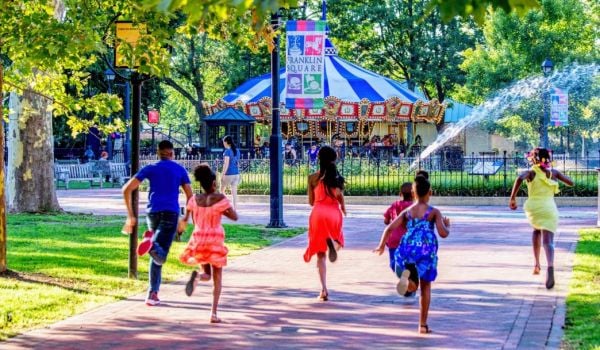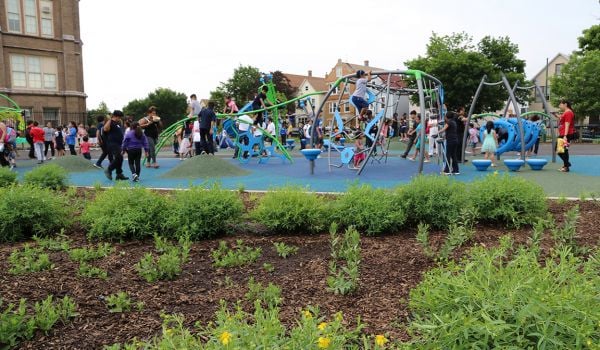Researchers have been documenting the benefits of outdoor playtime for years, demonstrating it leads to improved cognitive ability, fights childhood obesity, improves mental health and promotes social skills. Yet, for far too many children, safe, well-designed playspaces are sorely lacking. This phenomenon is called playspace inequity, and it has lasting, detrimental effects on primarily Black and Brown communities in the United States.
Cities around the country are recognizing the importance of playspace inequity as a public health issue, particularly as families emerge from a pandemic with wide-ranging physical and mental health impacts. When the National League of Cities asked mayors in their annual survey to list the top factors that most supported communities during the COVID-19 crisis, parks, recreation and green space was the number two factor.
This is all too familiar in the world of KABOOM!, a national nonprofit that has for decades worked to end playspace inequity for good. Until recently, the organization’s model has taken this on one playground at a time. In 25 years, KABOOM! has built or improved more than 17,000 playspaces, bringing healthy outdoor activity to children in need. While impactful, the organization recently changed that model, introducing its 25 in 5 Initiative to End Playspace Inequity. The idea: an ambitious five-year plan to end playspace inequity in 25 cities as the starting point to solve for playspace inequity everywhere across the country.
“We recently revisited the first community in Washington, D.C. where we built a playground 27 years ago,” says Lysa Ratliff, CEO at KABOOM! “Not much had changed, and as a nonprofit on a mission to solve a problem, we decided we needed to better understand how to address lack of access in communities around the country.”
From this realization came the concept for 25 in 5. “Instead of saying we have enough funding for one playground, we’ve pivoted to say we understand the scale of the problem, and we are making a commitment to end playspace inequity in key places in the next five years,” Ratliff says.
Baltimore was a natural place to kick off this approach. KABOOM! has a long history of working alongside partners and communities across the city to build kid-designed playspaces that can spark joy and foster a sense of belonging for the kids who are often denied opportunities to thrive. In 2015, following Freddie Gray’s murder and the civil unrest that resulted, KABOOM! doubled down on investing in Baltimore’s kids. KABOOM! partnered with Family League of Baltimore and Baltimore Corps to launch “Play More, B’More,” an initiative that built 25 playspaces—12 of which were playgrounds at Baltimore City Public Schools.
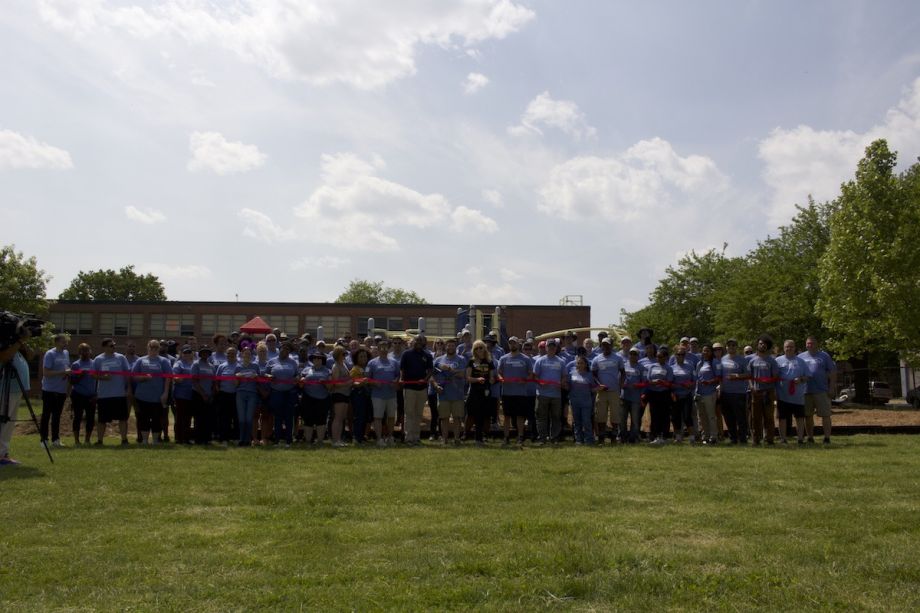
The KABOOM! team and their local partners cut the ribbon on Baltimore's newest playground. (Photo courtesy of KABOOM!)
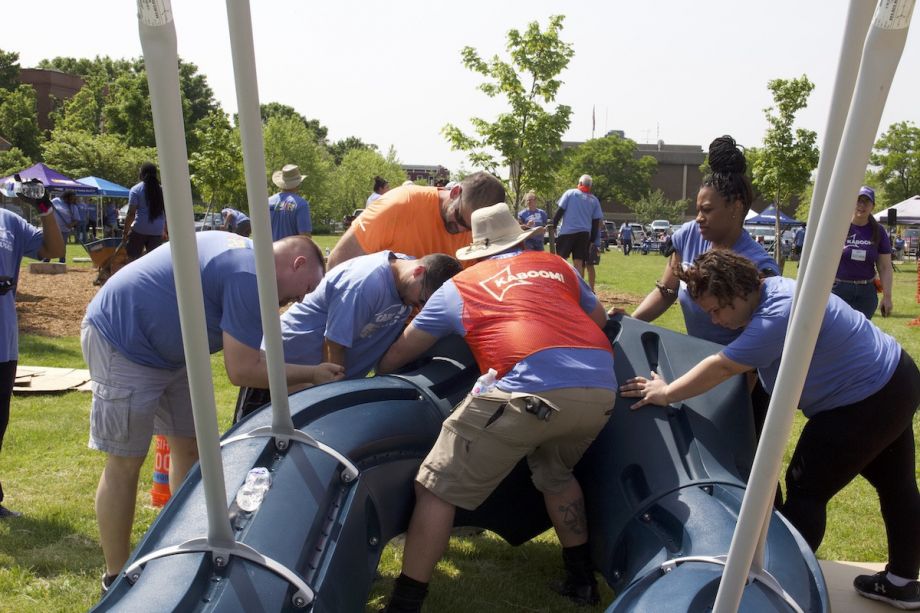
Volunteers build the Baltimore KABOOM! playground in May 2023. (Photo courtesy of KABOOM!)
KABOOM! has since built relationships with city officials, community leaders, and stakeholders— kids and parents alike—that have resulted in strong partnerships with agencies across the city. In 2019, KABOOM! formalized a partnership with the Baltimore City Public Schools, agreeing to work together to solve the problem of playspace inequity across public schools in Baltimore.
Baltimore is a city with a majority BIPOC population, around 72%. Like many U.S. cities, racial segregation, white flight, a shrinking urban tax base, and disinvestment have led to disparities in outcomes. Test scores for BIPOC students lag far behind those in majority-white communities—only 31% of Baltimore’s fourth graders are proficient in reading, for instance. “There’s a huge population of people we are leaving behind,” Ratliff says. “We want to bring entities together to get clear on the problem, and then find the resources through private and public partnerships to fix it.”
Both Baltimore City Public Schools and Baltimore City Recreation and Parks are partnering with KABOOM! on the initiative. According to Alison Perkins-Cohen, chief of staff for the school system, “Schools should ultimately be joyful places. We know play is crucial to learning, as well as being able to be outside, move around and breathe fresh air.”
With that in mind, the school system created its Blueprint for Success, focusing on “student wholeness” as a core pillar to improve student outcomes. “Our partnership with KABOOM! is central to our vision of student wholeness,” Perkins-Cohen says.
Baltimore City Recreation and Parks has been busy assessing 120 play sites around the city, identifying 50 that could use improvement. “We rated them from excellent down to poor, and we’re hoping to work on 25 of the poor locations with KABOOM!,” says department executive director Reginald Moore. “Some of the structures in these spaces are so old that the original manufacturers, and thus replacement parts, don’t even exist anymore.”
Right now, the KABOOM! partners plan to build three to four new playspaces this spring. The first playground in Baltimore since their announcement as a 25 in 5 partner was recently Franklin Square Elementary School, supported by long-time KABOOM! partner The CarMax Foundation. Ratliff says funding efforts continue and will come from a variety of public and private sources. “We’re looking for partners who want to fix things and solve problems,” she says. “These systems can’t fly solo, so we want to help funnel funding to them.”
To learn more about how to become a partner in the 25 in 5 Initiative, visit the 25 in 5 page on kaboom.org. Interested parties will soon be able to submit an interest form as the beginning step of joining the initiative. Put together with public partners like schools and city parks departments, KABOOM! hopes to multiply its impact. “We have partnered with KABOOM! and the parks and recreation department to introduce bond initiatives and seek private funding opportunities to provide for six playgrounds in 2023,” Perkins-Cohen says. “We have also worked together to rally communities to advocate for support of these initiatives, and there are individual school communities that have written grants or raised funds themselves.”
Ratliff says that Baltimore will serve as a blueprint for other cities as the 25 in 5 Initiative gets underway. KABOOM! is already identifying the other 24 communities that will benefit. “Baltimore has shifted our thinking on how we can do more, so that one new playspace at a time is no longer acceptable,” she says. “A school system and the tax base can’t fix the problems on their own. It’s everyone’s responsibility that we care for the children who will inherit the future.”
The Franklin Square Elementary School Playground Build
Amanda Loudin is a career freelance writer with a focus on health and science. Bylines include The New York Times, The Washington Post, MONEY magazine and many more. Learn more and read samples of her work on her website.

